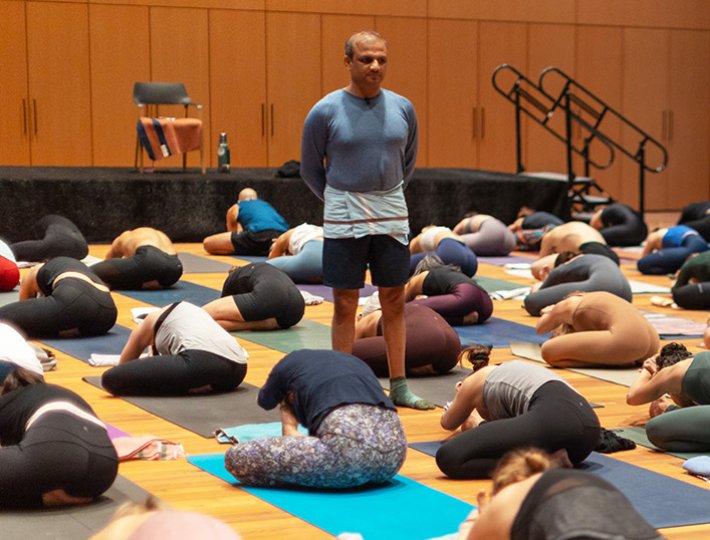I pulled the bed sheets over my head to block the morning sunshine from hitting my face. It was a beautiful July morning, a day I’d usually jump up, slip on my running shoes, and hit the trails for a fun long run.
But not today.
My head was foggy from a bad nights’ sleep, my body felt like lead and I couldn’t bear the thought of facing the world, let alone running. Less than a year earlier, I’d been racing ultramarathons while juggling a career as magazine editor and a family (my husband and I were raising a rambunctious toddler). I had it all in hand until my energy gradually drained away. I lost the motivation to run, became crabby and miserable. As a result, the littlest issues caused me great stress. I felt as though I were running a marathon every day when in reality, I rarely ran at all. The daily marathon of life became harder to sustain as I became more depleted.
Fast-forward four years, my condition improved once I learned that I wasn’t merely tired or suddenly lazy. I had adrenal fatigue, a condition that most doctors are reluctant to diagnose because it manifests so differently in every person.
“Adrenal fatigue isn’t an illness per se. It’s a collection of fatigue-related symptoms,” says naturopathic physician Eric Wood, who practices holistic medicine in Fort Lauderdale, Florida. “This profound state of depletion isn’t something for which doctors can conduct laboratory tests until the condition is extremely severe.”
A Hormonal Response
Whenever the adrenal glands, which sit atop the kidney, are stimulated by stress, they excrete hormones including cortisol, adrenaline, and testosterone, which play a role in increasing heart rate and blood pressure, slowing digestion, and shutting down executive brain functions, among other physiological changes collectively known as the stress response.
This response prepares the body for “fight or flight” by giving you the short-term advantage of being slightly stronger, more alert and prepared for action. Normally, when the threat (stress trigger) goes away, the body resets itself by re-balancing hormones and re-activating bodily systems—like digestion and high-level brain activity—that had been temporarily suppressed.
The problem is when the body stays in flight-or-fight mode all day, day after day, making you susceptible to conditions like adrenal fatigue.
“Adrenal fatigue is a huge issue in our fast-paced society where people wear their busy-ness like badges of honor,” says Michelle Eads, M.D., of Colorado Springs, Colorado. “The symptoms of adrenal fatigue are so prevalent in our stressed-out society that they’ve become the ‘normal’ way to live.”
Over time, the effects of excess work, high stress, little vacation, fast-paced lifestyle, poor diet, and environmental toxins lead to adrenal gland dysfunction, the symptoms of which are different for everyone but usually include:
Difficulty sleeping
Hormonal shifts let you may fall asleep immediately at bed time, but leave you wide awake in the early morning hours, charged up and unable to fall back asleep.
Fatigue
You’re wired but tired during the day, especially in the middle of the afternoon, when hormones dip and you feel like crawling under the desk for a nap.
Decreased energy and motivation to exercise
You lose interest or energy to partake in you normally enjoy, as well as a decline in professional drive and libido.
Weight gain
You may become sensitive to certain foods and notice a decrease in appetite or crave sugar and gain weight (especially around your middle).
Inability to make fitness gains
No matter how hard you push yourself, you become more tired instead of fitter due to the body’s compromised ability to heal after exercise.
Frequent anxiety
You are easily overwhelmed by your emotions in response to even minor stressors or conflicts. You have trouble keeping up with your daily schedule and obligations.
A Holistic Solution
Jill Carnahan, M.D., a functional medicine doctor in Louisville, Colorado, is quick to point out that any treatment plan should consider all the lifestyle habits contributing to your stress, including exercise. “Treating the adrenals won’t really help unless you also treat the condition’s root cause,” says Carnahan.
For runners and other active people, she emphasizes the importance of not training too hard during the adrenal fatigue recovery period, which may take several months. “It’s important to remain active but avoid overexertion, which further stresses the adrenals and makes recovery difficult.”
And since the body’s physical and hormonal response is the same to life stress as it is to physical activity, proactively managing your emotional stress is equally critical to the recovery process.
“I recommend activities that trigger calm-inducing chemical shifts in the brain and body such as meditation, relaxing walks with a good friend or spouse, playing with the dog, yoga, fishing, or some other hobby or fun activity you enjoy,” says Eads.
Related: 9 Essential Yoga Poses to Boost Energy
During my recovery, I replaced a portion of my running volume with yoga and meditation. It didn’t take long before I was enjoying running again, getting fitter even while running less than before.
Changing my diet was also critical to recovery, in particular, cutting way back on coffee and other caffeine-containing foods and drinks designed to give athletes an ergogenic boost. But I noticed the most significant improvements when I changed my daily diet to include more vegetables and less processed foods.
“A proper diet of whole or minimally processed foods must be part of your adrenal restoration program,” Wood suggests. “Consume a diet comprised of mostly whole foods and rich in quality proteins, healthy fats and lower-glycemic load carbohydrates. Combined with adequate hydration, this forms a very solid foundation for adrenal recovery.”
After few months of deliberate self-care and rest, I was back to running ultramarathons, but with a more mindful approach, involving balancing the stress of training and life with good sleep, whole-foods diet, and a mindfulness practice. Being a runner, having a career and family are all vitally important to me, but not at the expense of my health.












Comments (0)